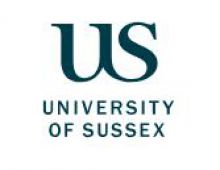The UK risks being unable to seize on emerging areas of research if it concentrates too much money in top-performing universities, a report argues.
Countries need a diversity of institutions doing research across a broad spread of subjects and regions, while multiple organisations should distribute funding, argues The Value of Structural Diversity, written by the Science Policy Research Unit at the University of Sussex and the technology company Digital Science.
Its recommendations come after changes to the funding formula in the research excellence framework, giving top-rated research more money, and proposals to bring both major streams of funding under one roof – a plan dismissed as a “terrible idea” by one of the contributors to the report.
Jonathan Adams, chief scientist at Digital Science, said that countries could not simply pour all their resources into the best-performing universities.
“The peak [of research excellence] only works because there is a platform of very good research supported right across the country in different regions, areas and institutions,” he added.
“You can’t just restrict your focus on the elite institutions,” he continued, arguing that without investing in other universities, “you don’t have the feedthrough of younger researchers”.
The report argues that countries need to maintain a breadth of research expertise because a “loss of structural diversity is a loss of capacity to respond flexibly when priorities change or when opportunities appear. Diversity builds in sustainable performance.”
For example, funding for soil science in the UK shrank in the decades after the Second World War, Professor Adams pointed out, but had not been allowed to completely wither away – meaning that it has been possible to reinvest in a subject now seen as crucial in understanding climate change.
The report also attacks policies that distribute funding based on past performance, calling this a “very limited perspective for policy and investment”.
“Awarding more funds to institutions and teams that did well last year is a safe bet only so long as next year looks similar,” it says.
Previously published scholarship was the basis of last year’s REF, the results of which have been used to determine how nearly £1.6 billion of research funding will be distributed this year.
A new funding formula for 2015-16 also means that a greater proportion of money will go to universities that produce “world-leading” research in the REF.
Professor Adams said that REF-based quality related (QR) funding was already “pretty concentrated” and it would be a mistake to allow it to become even more so.
In November last year, a report by Sir Paul Nurse, the then head of the Royal Society, said that QR funding – currently distributed by the Higher Education Funding Council for England – could be moved into a new body called Research UK, which would also better coordinate the existing seven research councils.
Although this latest report does not directly address these plans, it argues for a diversity of funding streams. Bringing quality related funding and research grants under the same roof would be a “terrible idea”, said Professor Adams.
POSTSCRIPT:
Print headline: Focus on ‘elite’ institutions ‘risks responsiveness of UK research’
Register to continue
Why register?
- Registration is free and only takes a moment
- Once registered, you can read 3 articles a month
- Sign up for our newsletter
Subscribe
Or subscribe for unlimited access to:
- Unlimited access to news, views, insights & reviews
- Digital editions
- Digital access to THE’s university and college rankings analysis
Already registered or a current subscriber?








